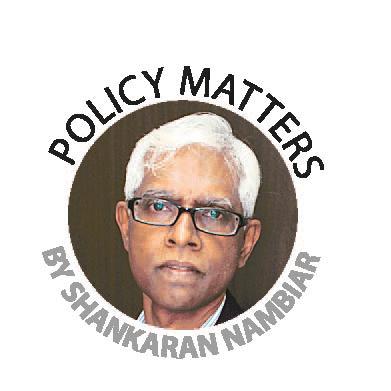THE coronavirus outbreak happens at the wrong time for the Malaysian economy. We have just been informed that growth was at 3.6% for the fourth quarter of 2019, the lowest since 3Q09. The growth rate for 2019 turns out to be 4.3%, the lowest in 10 years.
Comparisons can be made with the SARS outbreak, but there are differences. For one, the fatality of the coronavirus might not be as bad as SARS. The latter had a fatality rate of no less than 10%, while that for coronavirus might be about 2%. Coronavirus by some accounts is said to be more contagious than SARS and spreading faster.
With the outbreak and given the way the media has played it up, consumers are naturally anxious. The retail sector would surely have been badly hit the last several weeks. Shopping malls are almost deserted.
One would expect the tourist and hospitality industries to be severely affected; and, with it, related industries.
There is anxiety, too, about the global economy. Cross border flows would have been stymied. Most significantly, China’s economy, which was already slowing down, would have more reason to take a deeper dip.
These factors would dampen consumer confidence.
The longer the outbreak lasts the more consumer confidence is going to slip. This, in turn, will affect business sentiments.
Remember, even without the outbreak there are concerns about the Middle East, the lower price of oil, and the lower demand for palm oil from China and India.
The numbers for global growth are not brimming with vitality, in any case. Add to that the virus outbreak and you can see why consumer confidence will sag.
Going by MIER’s consumer sentiments index, consumer confidence has not been particularly strong. In 2Q 2019, at which point the index recorded 93 points, 7 points below the threshold. And it has been slipping since (84 points in 3Q19, 82 in 4Q19).
Given the low growth rate in the fourth quarter of last year and worries regarding the outbreak this year, it is very unlikely that there is space for consumer confidence to rise above levels seen last year.
Some have raised concerns that sentiments will drop below 2016’s score. I do not think anything as calamitous as that will happen. With the swift implementation of a comprehensive stimulus scheme we can avoid a severe drop in consumer sentiments. This has to be coupled with measures such as bridging loans for companies and some flexibility in loan repayment.
The SARS virus should remind us of the kind of stimulus package that is necessary for the country. Incidentally, Tun Dr Mahathir Mohamad was the prime minister in 2003 when the SARS outbreak occurred and he should be familiar with the stimulus package, amounting to RM7.3 billion, that was offered to mitigate the consequences of the disease.
Two things are required at the moment. First, a comprehensive stimulus package that takes into account the needs of all stakeholders and is swiftly and efficiently implemented. Second, it is necessary to have a greater degree of honesty from all concerned parties.
Neither should we have lobby groups trying to take advantage of the situation to unfairly usurp incentives for themselves. Nor should we have a state of denial.
The minister of tourism has claimed that Malaysia will see 30 million tourists coming into the country this year, with tourist arrivals being unaffected by the virus outbreak. Hopefully, this is based on fact and not on hope.
If indeed tourist arrivals will not be dented, then the industry will see no adverse shock. This implies that the industry does not need any policy measures to counteract any negative impact. Well and good, if true. If not, the Ministry of Finance will be supplied with misleading input.
From a policy perspective, objective appraisals are the best stand to take. Overenthusiasm can degenerate into denial, making it difficult to design good policy. A false sense of security and irrational expectations will do little to shore up consumer sentiments.
In any case, from a short term point of view, we have to deal with flagging consumer sentiments due to the virus outbreak. But, we will also have to deal with the longer term, given the broader global picture and the likelihood of damp global conditions in the first half of 2020.
Dr Shankaran Nambiar is a senior research fellow at the Malaysian Institute of Economic Research. His latest book is Malaysia: At the Edge of Transformation.














